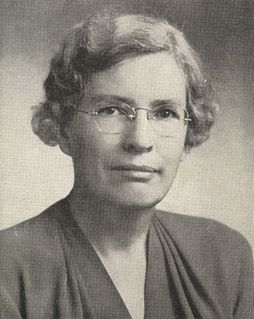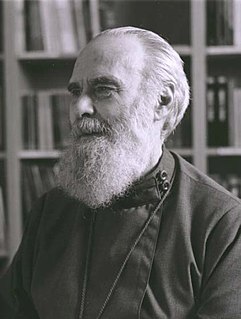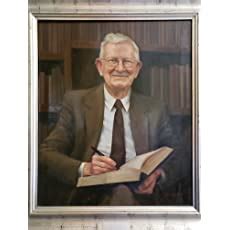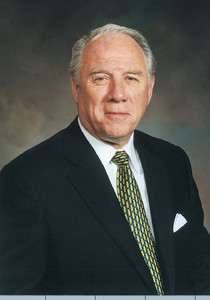A Quote by Georgia Harkness
Prayer is essentially a process by which ideals are enabled to become operative in our lives. It may be more than this, but it is at least this.
Related Quotes
Prayer works in the mind as a healing force. It calms the patient, enlightens the physician, guides the surgeon, and it often victoriously applies the power of the spirit when all seems lost. It proves, over and over again, the truth of Tennyson's words: "More things are wrought by prayer than this world dreams of." Prayer puts us on God's side. It aligns us with life's higher purposes, aims, and ideals. Prayer is dedicating our thought, feeling and action to the expression of goodness. It is to become like a window through which the light of God shines.
There is no substitute under the heavens for productive labor. It is the process by which dreams become realities. It is the process by which idle visions become dynamic achievements. Most of us are inherently lazy. We would rather play than work. We would rather loaf than work...But it is work that spells the difference in the life of a man or woman. It is stretching our minds and utilizing the skills of our hands that lift us from mediocrity.
In the performance of our responsibilities, I have learned that when we heed a silent prompting and act upon it without delay, our Heavenly Father will guide our footsteps and bless our lives and the lives of others. I know of no experience more sweet or feelings more precious than to heed a prompting, only to discover that the Lord has answered another's prayer through you.
Why is it that sometimes our prayers seem not to be answered? This is a manifestation of the Buddha's wisdom, so that we can deepen our prayers, become stronger people, live more profound lives and secure deeper, more lasting good fortune. If our slightest prayer was answered immediately, we would become lazy and degenerate. And we could not hope to build a life of great dignity and substance.
Morality is essentially a suite of psychological mechanisms that enable us to cooperate. But, biologically at least, we only evolved to cooperate in a tribal way. Individuals who were more cooperative with those around them - could outcompete others who were not. However, we have the capacity to take a step back from this and ask what a more global morality would look like. Why are the lives of people on the other side of the world worth any less than those in my immediate community? Going through that reasoning process can allow our moral thinking to do something it never evolved to.
If God's people hunger deeply enough, God will hear and send revival. God requires more than casual prayers for revival. He wants His people to hunger and thirst for His mighty working. To seek God's face is far more than occasionally mentioning revival in our prayer. It involves repeated and prolonged prayer. It requires holy determination in prayer, examining ourselves to see if anything in our lives is hindering God.
Ideals are very often formed in the effort to escape from the hard task of dealing with facts, which is the function of science and art. There is no process by which to reach an ideal. There are no tests by which to verify it. It is therefore impossible to frame a proposition about an ideal which can be proved or disproved. It follows that the use of ideals is to be strictly limited to proper cases, and that the attempt to use ideals in social discussion does not deserve serious consideration.
The great cognitive shift is an expansion of consciousness from the perspectival form contained in the lives of particular creatures to an objective, world-encompassing form that exists both individually and intersubjectively. It was originally a biological evolutionary process, and in our species it has become a collective cultural process as well. Each of our lives is a part of the lengthy process of the universe gradually waking up and becoming aware of itself.
Daily fervent prayers seeking forgiveness and special help and direction are essential to our lives and the nourishment of our testimonies. When we become hurried, repetitive, casual, or forgetful in our prayers, we tend to lose the closeness of the Spirit, which is so essential in the continual direction we need to successfully manage the challenges of our everyday lives. Family prayer every morning and night adds additional blessings and power to our individual prayers and to our testimonies.
We may not always recognize it, but government plays a bigger role in our lives than any other single person or institution. We spend nearly half of our lives working to pay for it. Children spend more time in government schools than they do with their parents. Birth, death, marriage, every area of our lives feels the influence of government.

































